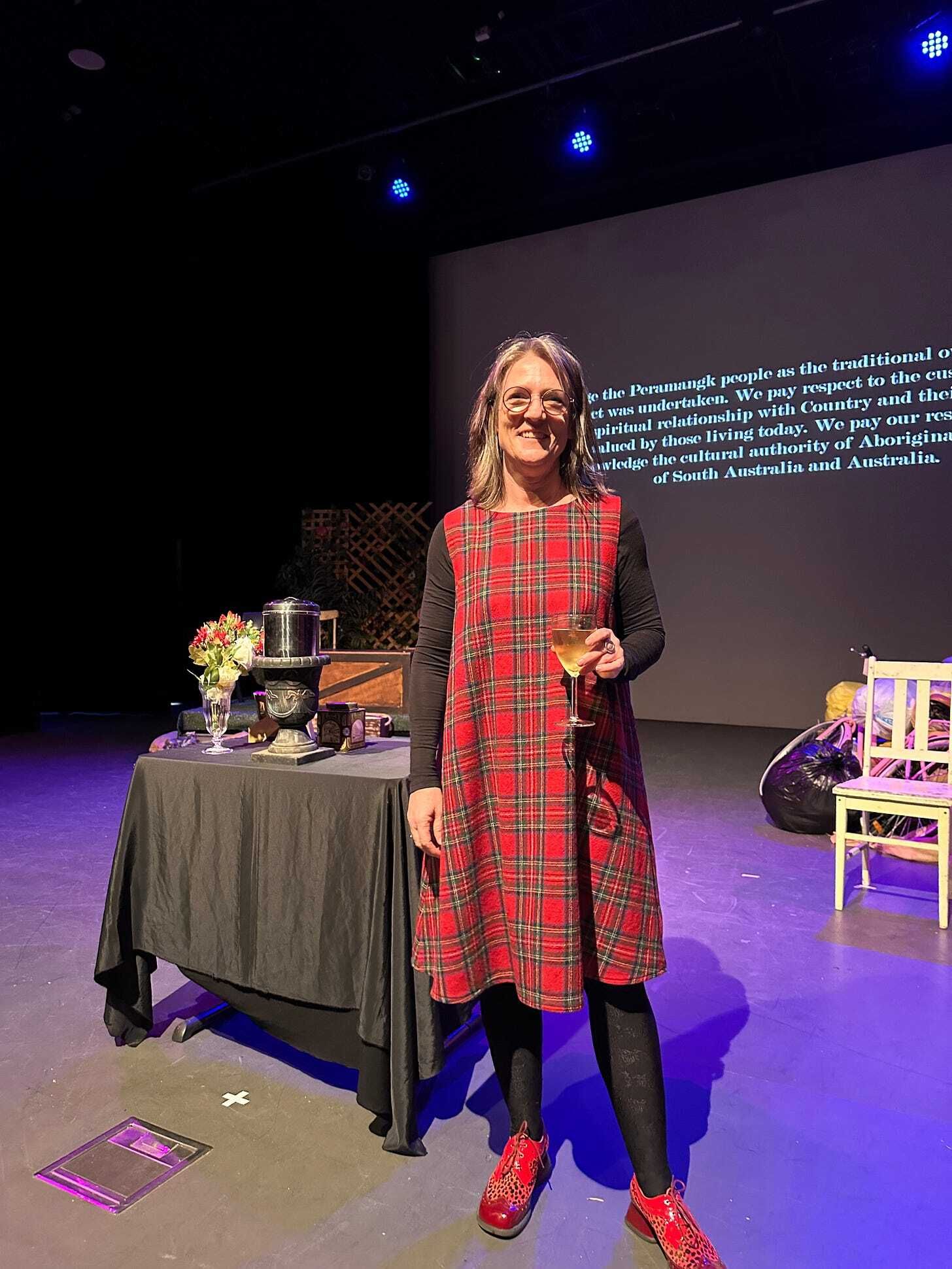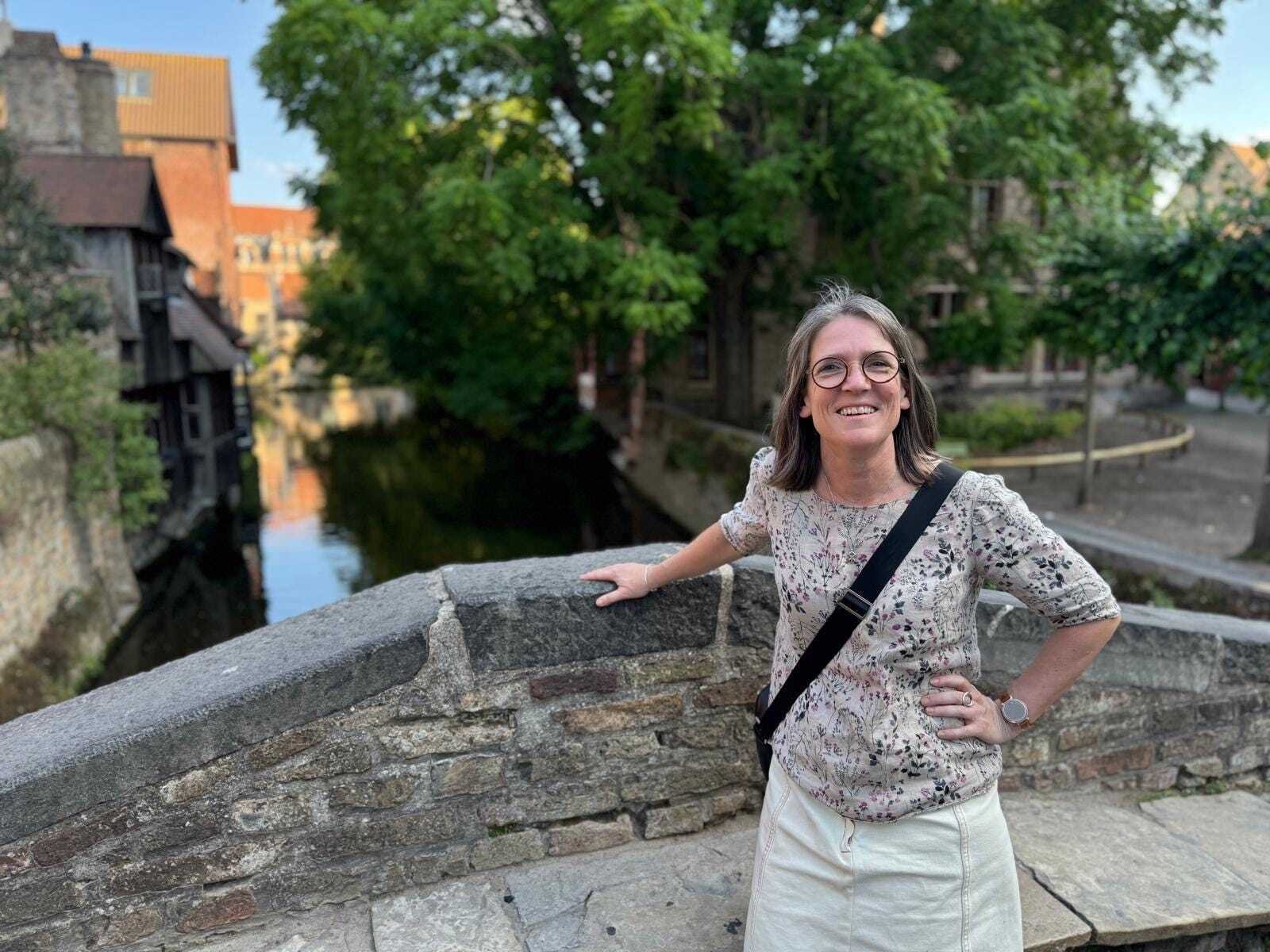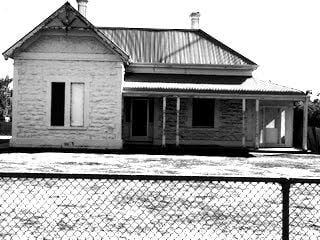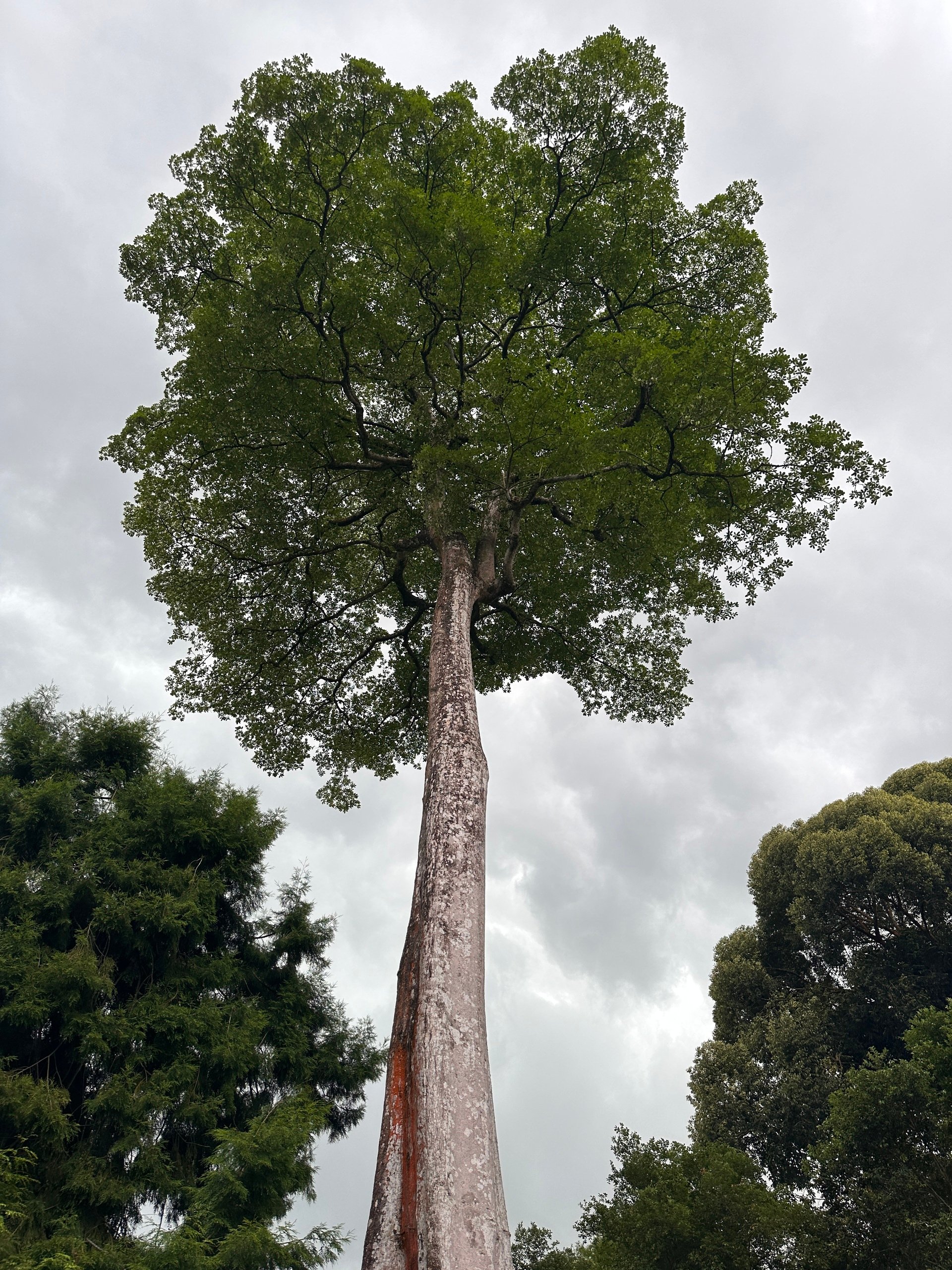My dear friend, I hope this email finds you ahead of the curve in our combined bid to vanquish the scourge of citrus gall wasp. I marvelled at the way in which horticulturalists were able to predict with such precision the likely time of the wasp emergence. Time will tell whether I have put in enough protection for my nascent mandarin tree; and whether my confidence in my orange tree has been misplaced.
Eighteen months or even two years ago, I experienced a sensation of unbalancing. I know! How unusual for me to be in a state of disequilibrium! But this was something different. It wasn’t just me who was unbalanced, it was my whole world. As if I were in a boat that were about to capsize. Searching for the reasons underlying this unblanacing these are the three things that came to me:
I was 55. I know that we don’t know what the mid-point of our lives is until long after that age has gone. But look at that number. 55. Its symmetry and balance pulse with the truth of being a marker between one time and another.
At 55, I was halfway between the ages each of my parents were when they died. It seemed not only an important time, but also an important time to honour their shortened lives.
Over the decades, I have started a lot of things, but finished very few. The sense of restlessness and dissatisfaction at the sense of incompletion had grown heavier than the excitement of the new. Alongside this was the mid-life understanding that life is finite, and if I wanted to finish things I’d better start now.
I began on a project which I at first labelled ‘to do’ but then renamed Unfinished Business. I got everything out. I took the physical things out of cupboards and boxes and drawers: all of the fabrics and patterns and threads; all of the pencils and paper and paints; all of the instruments; all of the books; all of the seeds; all of the music. I made lists of all of the things I had started to learn: the languages; the history; the art. I made a list of all the things I wanted my body to do: the weights I wanted to lift, the places I wanted to walk. I wrote down all of the jobs and careers I had thought I might have, and all of the businesses I might start: (I’m not going to write all them down, my goodness, I’ve had some ridiculous ideas!). I looked through all of my folders and files (hardcopy and virtual) and made lists and piles of index cards with characters, plots, formats, genres all of the things I wanted to write.
My dear friend, it was a LOT. It was messy—physically, emotionally, spiritually. I suppose it was a kind of Swedish Death Cleaning of the spirit. I don’t think you need to be Freud to see that much of the way I live my life is shaped by the circumstances of Mum’s death, with the deep truth that life can be snatched away in an instant. And I suppose that’s what kept me motivated to work my way through understanding all this Unfinished Business, and to address this sense of dissatisfaction.
It’s taken me a year, maybe more, and the truth I’ve had to come to terms with is that I’ll never finish half this stuff. But pushing myself to face this truth has brought me to a surprising outcome: for the first time in my life I feel a sense of clarity and purpose in what it is I want to do. For example, I haven’t been able to make the emotional break and give my banjo away, but I’m on the way to accepting that I won’t master the banjo and it will remain Unfinished Business. I won’t read everything I want to read, but it is nonetheless enriching to read with a sense of filling in some gaps or revisiting cherished favourites.
Mostly, where I have had the greatest shift is in getting a firmer grip on what I want my writing life to look like. For a long time, all my ideas have been tangled up in a big, messy ball called ‘writing.’ I couldn’t settle on what it was I was supposed to be doing next. I printed out every scrap, every note, every abandoned document, then cut them up into the tiniest of concepts. In this way, bit by bit I’ve untangled all of the singular thoughts and separated them so that I can see each character separately from the others; each plot winding its own way without interference from another; each concept standing alone. It’s hard work keeping them like that. I’ve got index cards and flip charts always at hand so that I can look back, remind myself that I’ll get to that idea, but for now I’m focused on this one. And of course it’s only the first step in getting things finished. There’s that whole awkward truth: now you have to write it.
All of this takes place, as things always do, in the context of great emotional upheaval in my life. But strangely (or maybe not, maybe it makes perfect sense) working on my Unfinished Business project has made the rest of it a little easier.
Here’s a photo of me on the set of the play I wrote for the 24 Hour Theatre Project.

I got home at 9pm after meeting our randomised team of director and four actors, and wrote a play that I submitted at 3am. Then the director started work at around 6.30am and met with the actors in the theatre at around 7.30am and they made an absolute treasure of a play out of the script. I didn’t see them or talk to them at all before I saw it, and I was blown away by what they did. They had captured every nuance, even the ones I hadn’t known I’d written, and made every joke work way better than I had ever pictured it. And even though I’d written the ending, because of the way they performed it, it took me completely by surprise—in fact, I was more surprised by it than anyone else. I laughed so hard, what an unexpected gift that my Unfinished Business project had never even hinted at.
(I know, what a surprise, I wrote a play with a funeral in it).
One night, not long ago, I broke my newly re-established golden rule: no phones at night. Before I went to bed, I checked the news. The last thing I saw was that Robert Redford had died.
One of my last thoughts before I fell asleep was a memory from my childhood. My father, returned from a conference in Adelaide with a gift for Mum: two posters, one of The Sting and one a black-and-white image of Robert Redford. My father said to me, ‘She’s in love with Robert Redford.’ It was entirely disorienting for a five-year-old girl to to hear her father so openly discuss her mother’s other loves. For all these years, this memory has been filed away in that corner of my brain that remembers things, but isn’t sure what those memories mean.
That night, my dreams were intense. They were filled with vivid colours, with large clouds that never properly morphed into concrete forms, with people in my peripheral vision who disappeared before I had a chance to turn my head, with echoes of conversations but never words.
When I woke, something of the last year made sense to me. I have been living with a sadness I couldn’t make sense of. Even knowing of the things that were happening around me—the big things in my family and in the lives of friends; the knowledge of what we are witnessing but have no control over in the world—even knowing this I couldn’t understand this persistent sadness. It has been deep and unshakeable; and seemingly without cause. To be clear: I knew that it wasn’t depression; it wasn’t black and it wasn’t bleak. There was a purity to it, an ache in my heart, a slowness in my blood, a bruising in my thoughts. Even though I wasn’t unhappy, this sadness was always there.
When I woke up on the morning after Robert Redford died, and after the swirling dreams, I understood what this sadness meant. Subconsciously, I’ve been living with an understanding: if Mum hadn’t died all those years ago when she was young, then I would be facing her death if not now, then soon. It’s almost as if—nearly thirty years later and countless markers and reminders—that only now is it true. I had a lovely, long, recuperative sob. For myself, but I think mostly for her. For the mountain of Unfinished Business she had started to grow, but never had a chance to leave properly unfinished.
I don’t want you to think that with all this focus on myself I’m not focussed on the world. I am. I’m not looking away. My heart is heavy, I’m despondent and I’m afraid. One thing that has made me more hopeful than anything has for years is this: the shellfish reefs being restored along South Australia’s coastline. I feel something about this that I haven’t quite articulated to myself. Partly of course because it might help to address the algal bloom which is breaking the hearts of those of us with front-row seats. But it’s also something deeper than that: something about facing the damage of colonisation; about potential solutions to the impact of climate change; about the power of nature. I don’t know exactly what, but it’s the first time in a long, long time that I’ve felt my letters to politicians and donations are going to something making real and tangible change. That’s a good feeling.
Take good care of yourself, my dear friend as you tend to your business, as you take the coffee off the stove, as you feel the spring air on your skin, as you watch your bottlebrush bloom. Take care through it all, and remember that I think of you often and with love.
Your friend,
Tracy



